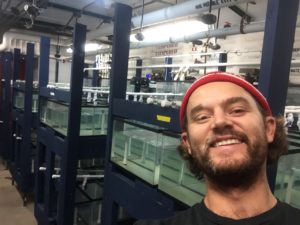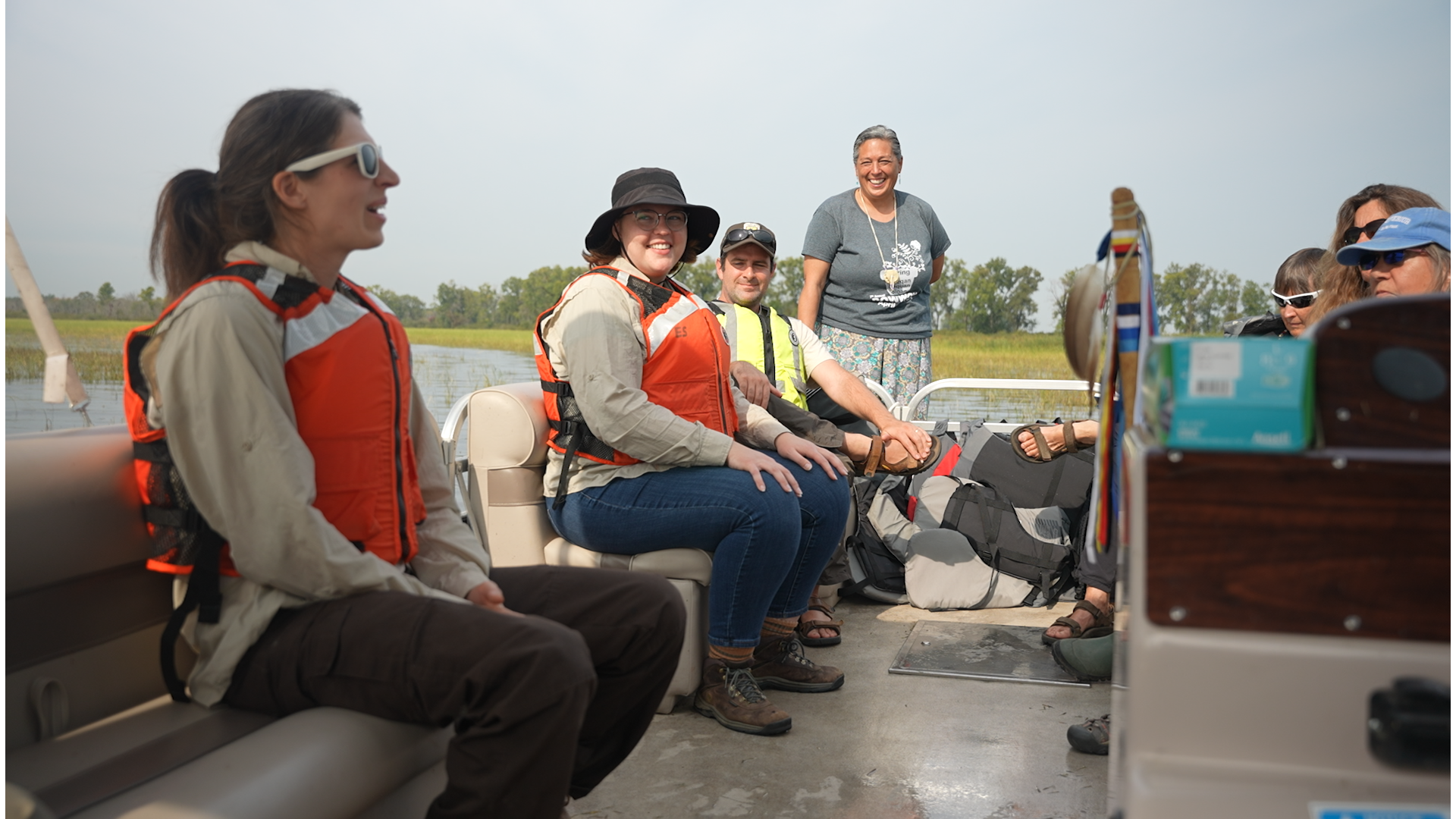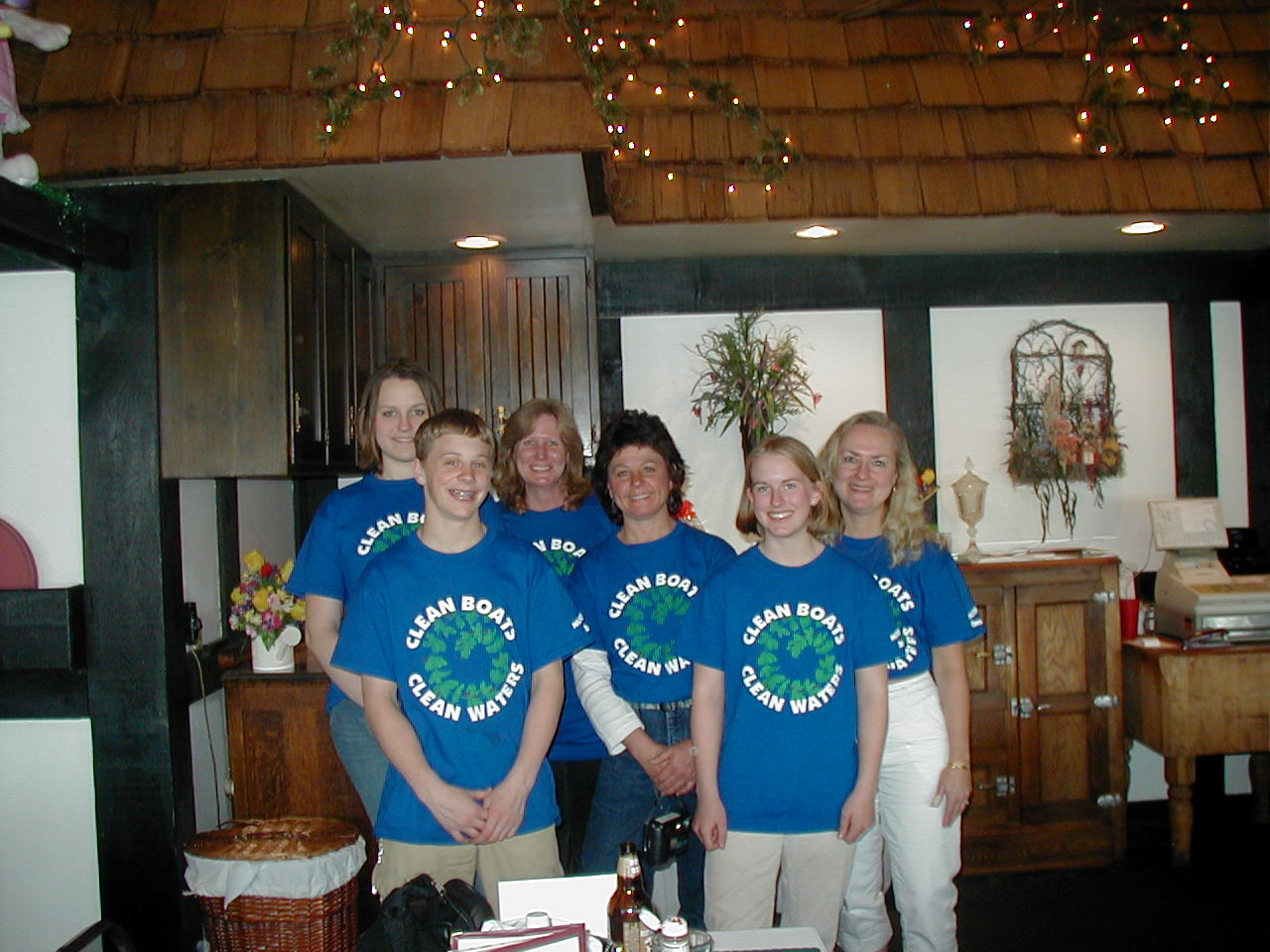When Gavin Dehnert was young, he didn’t just have one aquarium in his bedroom. He had, “turtles, fish and whole ecosystems in very giant tanks that my parents said took up too much room in the house.” So, he took his projects outside to a pond in the backyard.

Gavin Dehnert stands in front of the exposure system he built with his father, grandfather and mother. Image credit: Gavin Dehnert.
His passion for fish led him to the University of Miami where he received his undergraduate degrees in marine science and biology. Later, he moved north to pursue a Ph.D. in integrative biology with a focus on toxicology at the University of Wisconsin-Madison where he studied the effects of the herbicide 2,4-D on the development and behavior of fish at different life stages. The project opened his eyes to the importance of clean water and ecosystems, and enlarged his passion for fish into a passion for the water they inhabit.
While he was still in his Ph.D. program last fall, Dehnert attended a UW-Madison water science symposium and learned about the various fellowships available. The Wisconsin Water Resources Science-Policy Postdoctoral Fellowship fit his newfound water passion and desire to make a difference in water quality through policy work, so he applied.
For his fellowship, Dehnert is working with Sarah Yang, a groundwater toxicologist at the Wisconsin Department of Health Services (DHS). “We are very excited to have Gavin working with us. This is the first time the fellowship has placed someone at DHS and we are excited by the opportunities this new partnership provides,” Yang said.
For his fellowship, Dehnert is working on three main projects. The first is to help develop groundwater standards for 27 drinking water contaminants, including perfluoroalkyl and polyfluoroalkyl substances (PFAS). While PFAS are of recent concern, Dehnert said some of the other contaminants have been around for 30 or 40 years but do not have standards yet. He plans to use existing scientific literature as the basis to create safe drinking groundwater standards for the 27 contaminants.
His second project is to determine if any groundwater standards can be combined and to create a process to do so. For PFAS, for instance, there are thousands of different compounds so, “it’s almost impossible for us to have data on every single one,” Dehnert said. He will look at their chemical structures, human health effects and more for this effort.
Dehnert’s third project involves public outreach programs about the groundwater standards he is helping create and that were created in a previous cycle. Due to COVID-19 virus health concerns, these programs will be virtual.
“There’s more and more we keep learning about these emerging contaminants as well as contaminants that have been around forever,” Dehnert said. “We’re learning that we should be aware of them and continue researching their impacts . . . . I will never lose my passion for fish and how to incorporate them into research, but I do like learning about groundwater systems and emerging contaminants. They can be a large health concern to both the environment and humans.”





